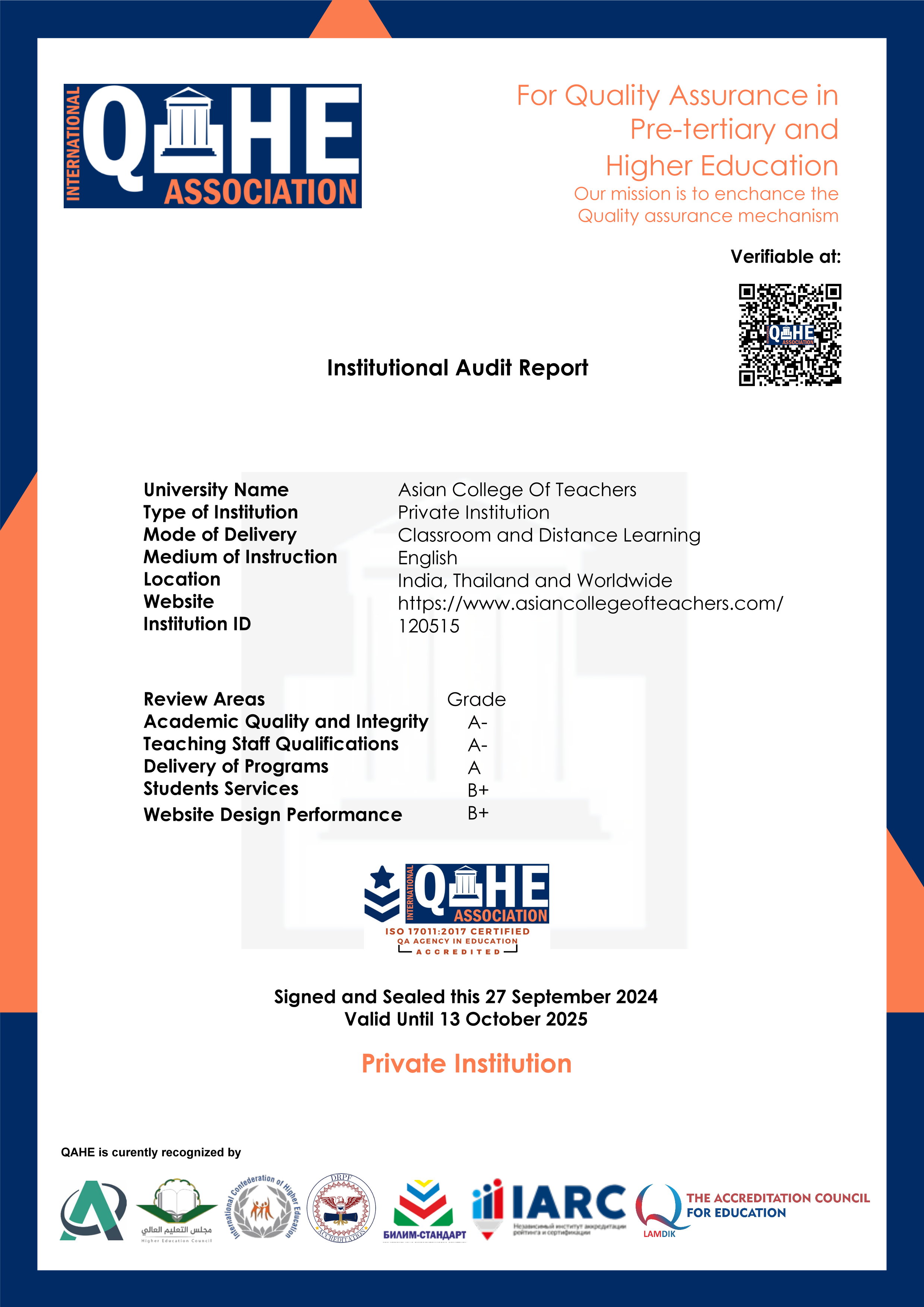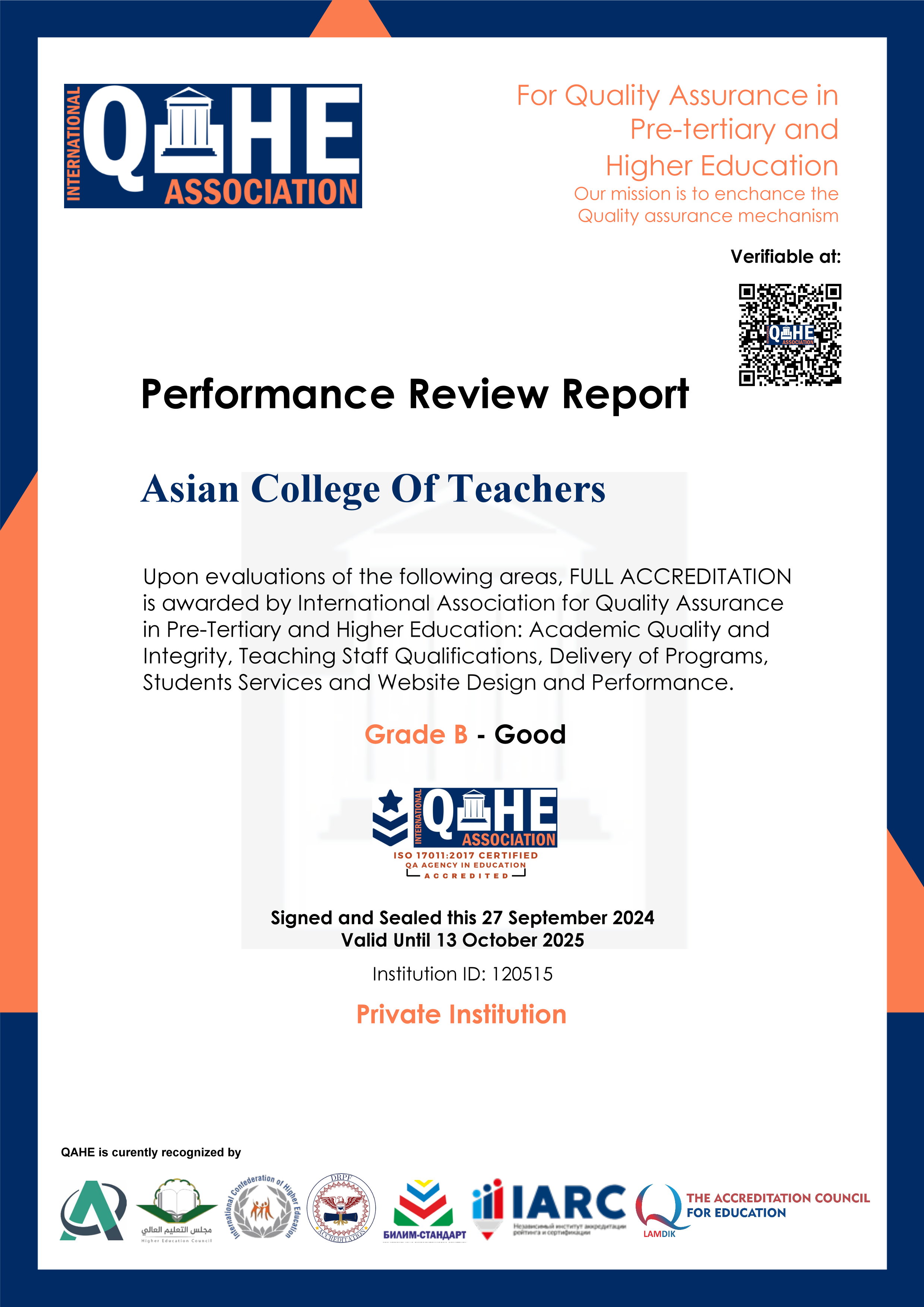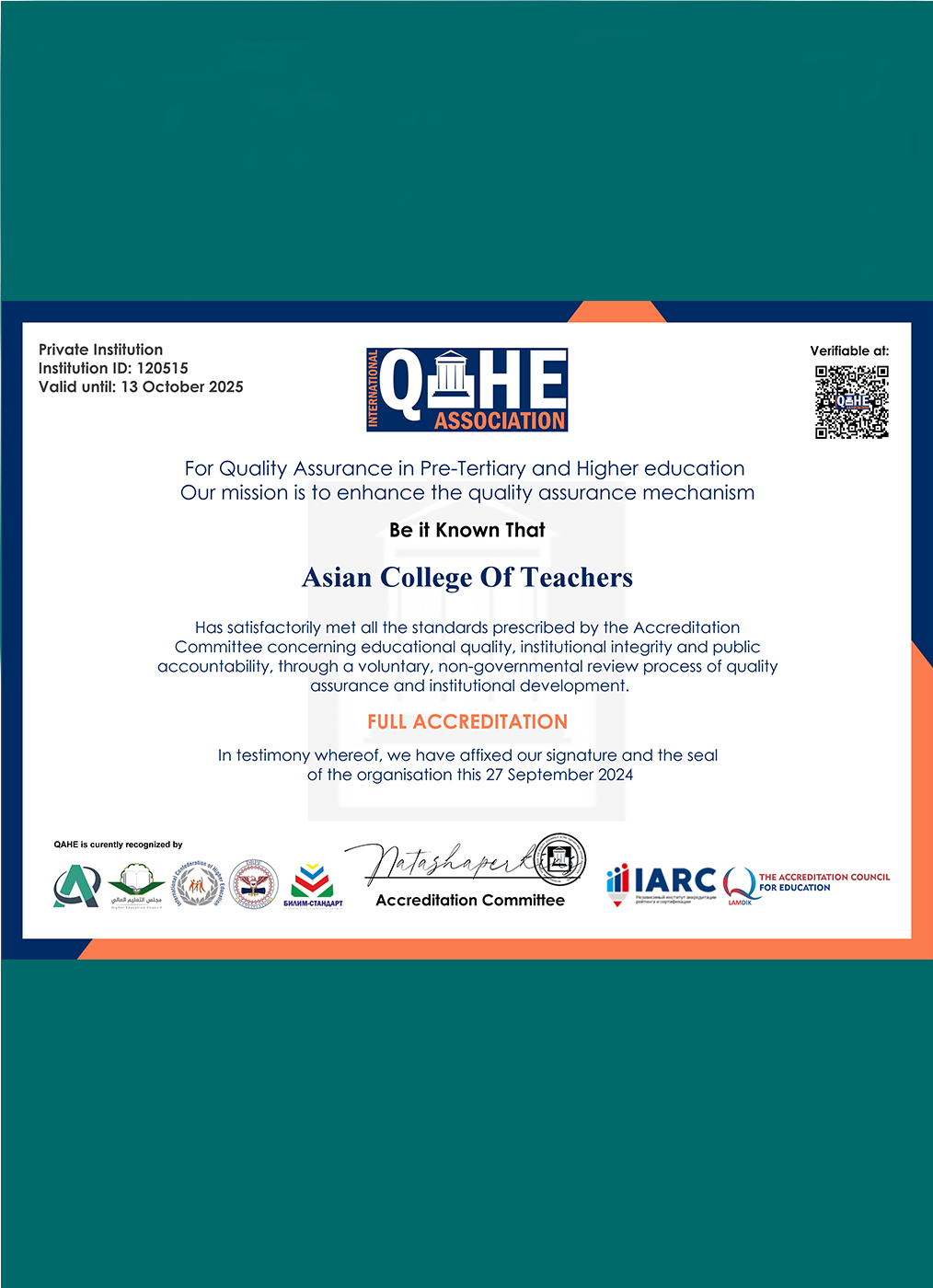Quality Assurance in Higher Education (QAHE)
Asian College of Teachers- Institution ID: 120515
Introduction
Asian College of Teachers (ACT)is not only a leader in teacher education in Asia but offers possibilities to future educators to reach their full potential and make a mark on global educational platforms. The robust alumni of 30,000+ are already making an impact to teach and touch lives whether closer home or on a global platform.ACT is a brand name to reckon with when it comes to teacher training courses offeringthe scope to get certified in an array of courses and become a confident 21st century educator. The courses have been designed keeping in mind the global demands and are at par with international standards of teaching. Our story doesn’t end here. We are constantly getting associated with global bodies for valuable accreditations to make the courses potent and strengthening the employability aspect of each course. In an attempt to provide our students with quality training and a platform to establish themselves, ACT has associated with the prestigious International Association for Quality Assurance in Higher Education (QAHE) by getting all its courses accredited.
About QAHE
International Association for Quality Assurance in Higher Education (QAHE) is an independent, private and international organization which is funded through fees charged for its accreditation services to Certification Bodies and Training Organizations. It usesits expertise to support the development of quality assurance systems worldwide. As the accrediting agency has grown in size and complexity, the quality assurance systems have evolved and, progressively, tasks are articulated and delegated, with official certifications. Besides traditional higher education, distance education, vocational education and the need for recognition of prior learning are all important subjects in the field of higher education. The drastic change in higher education requires QAHE to enhance the quality assurance mechanism. QAHE recognizes higher education institutions for research performance, student services and teaching quality to value the confidence of the public. Their accreditation of higher education institutions is a voluntary and non-governmental process of quality assurance and institutional development.
ACT gets Full Accreditation from QAHE
Asian College of Teachers (ACT), the research driven and multiple award-winning teacher training institute providing superior teacher education, gets full accreditation for its courses from International Association for Quality Assurance in Higher Education (QAHE) and features in its list of accredited institutions. QAHE is an expert in recognizing higher education institutions for research performances, student services and quality of teaching to valuethe confidence of the public along withsupporting the development of quality assurance systems worldwide. We, at ACT, are always committed to providing candidates with the best possible learning experience and thus, continue to invest in both our facilities and our innovative approach towards teacher education. QAHE’s accreditation eligibility criteria contain the five areas mentionedbelow for which ACT underwent inspection of its internal quality assurance system and review of its study programs.
- Academic Quality and Integrity
- Teaching Staff Qualifications
- Delivery of Programs
- Students Services
- Website Design and Performance
Moreover, to maintain its accreditation from QAHE, ACT must enter the Continuous Perfection Evaluation process every year. With an accreditation from an internationally acclaimed accreditation organization like QAHE, Asian College of Teacherspromises to ensure continuous enrichment of course delivery, teaching quality and research tasks to achieve and maintain its international standard in every aspect of providing training services to its students from across the globe.
Benefits of enrolling in an QAHE accredited program
Enrolling in an QAHE accredited program will provide the candidates with a competitive advantage in the field of teaching, all across the globe. The globally recognised accreditation will provide a strong boost to a candidate’s CV and teaching career thus enhancing their marketability and employment options. It is more of a separate, recognized qualification verifying that the candidate is skilled and competent in a range of areas. Candidates having a QAHE accredited course certification will be recognised globally for theskills acquired and knowledge gainedthroughout the program.
Verifying Credentials
Students enrolling or graduating from Asian College of Teacher can verify ACT’s accreditation at QAHE’s home page under ‘SEARCH INSTITUTIONS’ by typing the name of our institution. https://www.qahe.org/





